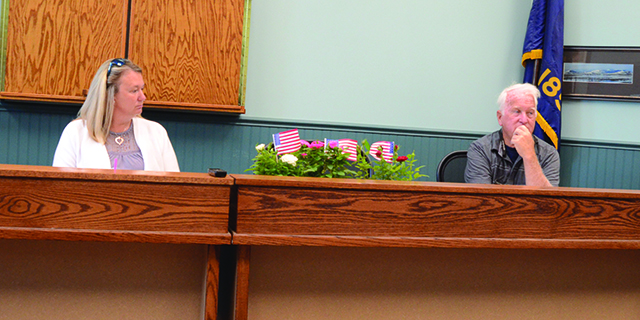McColgan Homelessness
Published 2:04 am Wednesday, December 4, 2019
Because a few of our Rotary meetings lately have involved local organizations and causes like the Soroptimists, Community Connection and the Food Bank, and because of an empathetic comment from a friend of mine, I got to thinking recently about homelessness. More particularly, I reflected on some of the homeless people I have known over the years, because it strikes me that one of the problems that we have regarding the homeless is that we often look right past them.
Looking back over my life, I suppose the first homeless people I ever knew were my grandparents on my mother’s side. They were the only grandparents I ever knew, because my dad’s parents died before most of us six kids were born. When I was in high school, my grandparents lost their fourplex, convenience store, and gas station to a fire. Everything burned down in one night, and they had nothing left, except the price of a large city lot. They moved in with us the next day, and lived with my folks until each of them passed away. For Papa, that was only about a year. Our Nana lived in our family home for about another decade. But I never really thought of them as homeless, because they just moved from their home right into ours.
Trending
When I was a senior in college, I worked at a nursing home in Boston during my summer break, and again when I was home around Christmas time. One day an elderly man (at least at the time I thought a man in his seventies seemed elderly) was brought in, probably by people from social services. He was articulate and well-read, and he didn’t really want to be there. He had been living on the streets, finding warmth with some of his fellow homeless people in subway stations or near heating grates. He told me he liked living with his friends outside better than being in the nursing home. So on Christmas Eve when I showed up for my shift, I was not too surprised to learn that he had slipped away that afternoon, in the middle of a snowstorm. I worked there for only about another week, so I don’t know what became of him. I suspect he stayed on the streets.
When I lived in southern Oregon, I used to see a man living under a railroad bridge or in a nearby drainage culvert whenever I drove into Ashland. He had a long unkempt beard and shaggy hair, and he wore the same heavy winter coat, all year round, even in July and August. Whether you drove past him or walked past him, he never made eye contact. It was as if he didn’t see you, maybe because he assumed you didn’t see him. He died when he was still relatively young, in his forties. I never knew his name, and I have forgotten the name of the man who escaped from the nursing home in Boston.
One homeless man whose name I did know, at least partially, was called “Martin the Goat Man” by all the locals thirty years or so ago in the Rogue Valley. Rumor had it that Martin had once been a nuclear physicist, but he eventually dropped out of regular human society and chose to live instead as a nomad with his small herd of goats. He and his goats would find a friendly landowner and camp out in their fields or sheds for a while, and then move on. He too tried a nursing home briefly, but he found it stifling, so he returned to his outdoor life with his goats.
A Wallowa County man nicknamed Fireball is another homeless person I knew, but only by proximity. He would sometimes camp on the land between the irrigation canal and the river behind our house, or on the bridge over the river behind our neighbor’s house. He had a sleeping bag, but no tent, and winters without shelter are cold here, as you all know. I heard that Fireball was a veteran with drinking issues. A life like his takes its toll on a body and mind, and Fireball died too young. I think he was still in his fifties.
I tell these stories so we all can be more aware, as many good-hearted people in Wallowa County are, of the folks who need our help, not just at Thanksgiving and Christmas, but throughout the year. And bear in mind, the next time you are tempted to turn your eyes away or to be judgmental, that someone in your own family might someday be homeless, and that Jesus was born in a stable, with only a few people and animals there to welcome and comfort him, because there was no room at the inn.
John McColgan writes from his home in Joseph.









